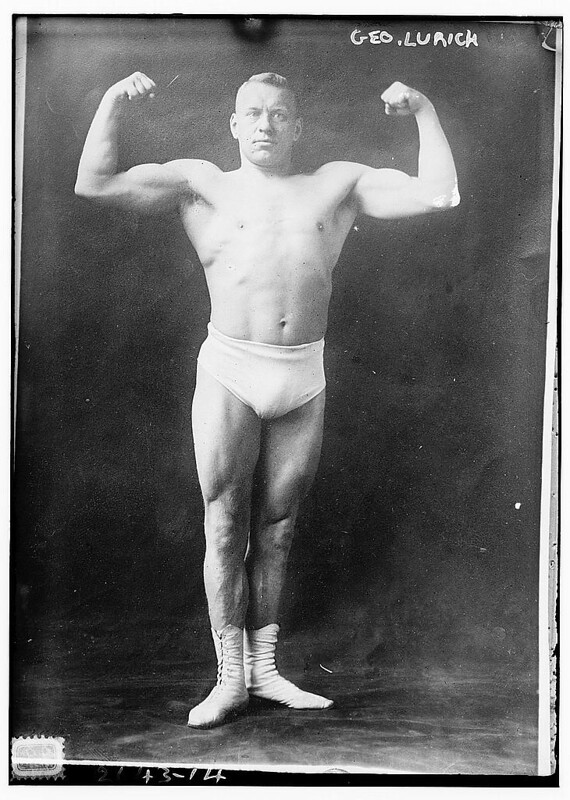THOMAS DUNBAR (2)
By:
January 9, 2023

Gertrude M. Barrows, who would later write under the pen name Francis Stevens, published “The Curious Experience of Thomas Dunbar” in The Argosy in 1904. She was nineteen; this was her first proto-sf story. It’s one of the earliest tales of a lab-created superman — and most likely the first such story by a female author. HiLoBooks is pleased to serialize it here for HILOBROW’s readers.
ALL INSTALLMENTS: 1 | 2 | 3 | 4 | 5 | 6 | 7 | 8.
“Would you tell me — if you don’t mind — your name?”
“Lawrence.”
“Lawrence what?” I whispered. “Just ——?”
“Yes,” he smiled (and his face ran into a very tempest of wrinkles) “just Lawrence. No more.”
Then I slept.
And I did little but sleep, and wake, and eat, and sleep again, for some five days. And during this time I learned marvelously little of my host and his manner of life.
Most questions he evaded cleverly, but he told me that it was his auto which had nearly ruined my earthly tenement; Lawrence had himself taken me from the scene of the accident without waiting for an ambulance, telling the police and bystanders that I was an acquaintance. He had carried me to his own house, because, he said, he felt somewhat responsible for my injuries and wanted to give me a better chance for my life than the doctors would allow me.
He seemed to be possessed of a great scorn for all doctors. I knew long after that he had studied the profession very thoroughly, and in many countries, and truly held the right to the title he contemptuously denied himself.
At the time I considered only that he had cured me up in wonderfully short order, considering the extent of the injuries I had received, and that I had suffered not at all. Therefore I was grateful.
Also he told me, on I forget what occasion, that his mother was a Japanese woman of very ancient descent, his father a scholarly and rather wealthy American. And for some eccentric reason of his own, his dwarfed son had chosen to eschew his family patronym and use merely his Christian name.
During the time I lay in bed I saw no servants; Lawrence did all things necessary. And never, day or night, did the humming and sighing of the machines cease.
Lawrence spoke vaguely of great dynamos, but on this subject, as on most others, he was very reticent. Frequently I saw him in the dress of a mechanic, for he would come in to see me at all hours of the day, and I imagine must have inconvenienced himself considerably for my welfare.
I had no particular friends to worry about my whereabouts, and so I lay quiet and at peace with the world for those five days in inert contentment.
Then an hour came — it was in the morning, and Lawrence had left me to go to his laboratory — when I became suddenly savagely impatient of the dull round. Weak though I was, I determined to dress and get out into the open air — out into the world.
Mind you, during those five days I had seen no face save that of my dwarfed host, heard no voice but his. And so my impatience overcame my good judgment and his counsels, and I declared to myself that I was well enough to join once more in the rush of life.
RADIUM AGE PROTO-SF: “Radium Age” is Josh Glenn’s name for the nascent sf genre’s c. 1900–1935 era, a period which saw the discovery of radioactivity, i.e., the revelation that matter itself is constantly in movement — a fitting metaphor for the first decades of the 20th century, during which old scientific, religious, political, and social certainties were shattered. More info here.
SERIALIZED BY HILOBOOKS: James Parker’s Cocky the Fox | Annalee Newitz’s “The Great Oxygen Race” | Matthew Battles’s “Imago” | & many more original and reissued novels and stories.
